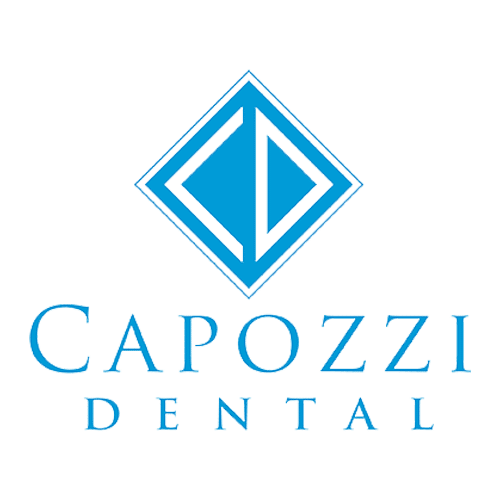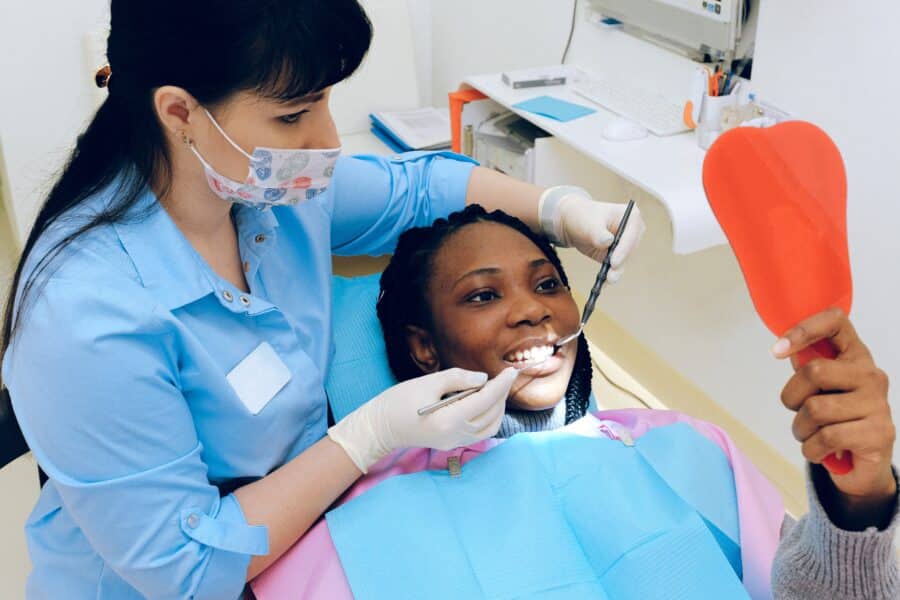The Role of a Dental Hygienist:
A Registered Dental Hygienist is an important part of your dental team. Hygienists are dental professionals who have completed training at an accredited college, graduated with at least an associate degree, have passed both written national boards & clinical regional boards, and have obtained state licensure to practice.
While state regulations for the scope of practice may vary, most dental hygienists’ responsibilities include the following:
- Dental cleaning
- Patient screenings
- Preventative applications
- Oral health education
- Expanded dental roles
Your Dental Cleaning:
When you visit your dental office for a dental cleaning, the dental hygienist is the person you see. Hygienists clean your teeth by removing plaque, calculus (tartar), and stain from all your tooth surfaces above and under the gum line. Removal of these deposits helps to rid your mouth of not only visible stains but also harmful bacteria that could cause a serious oral infection called periodontal disease.
Hygienists also perform a more advanced type of non-surgical periodontal treatment called, scaling and root planing, which is considered phase-1 therapy for the treatments of periodontal (gum) disease.
Patient Screenings:
During typical dental cleaning appointments, your dental hygienist is also provided important screenings that will be documented and shared with your dentist prior to your exam. They access oral health conditions, review medical histories such as documenting medications and changes in health, providing oral cancer screenings and head & neck inspection, take vitals such as pulse and blood pressure, and chart dental documentation such as periodontal charting and hard tissue charting.
Preventative Applications:
In addition to cleaning your teeth, hygienists also apply preventative treatments such as dental sealants and fluoride treatments, which both help to prevent tooth decay.
Oral Health Education:
Dental hygienists are not just clinicians, but also educators. Every day hygienists help their patients better understand subjects such as oral home care, nutritional choices, and oral-systemic connections.
- Oral home care – Hygienists customize suggestions for their patients’ oral home care routine. They recommend the use of power toothbrushes, water flossers, floss, and additional in-between cleaning methods, recommend mouth rinses and kinds of toothpaste that best fit patient needs, and review methods of techniques.
- Nutritional choices – Your hygienist is also trained to discuss nutritional choices that may benefit your oral health because they have taken classes in nutrition in college and have spent most of their career discussing healthy food choices.
- Oral-systemic connections – Hygienists know that your oral health is directly linked to your overall health. At appointments, your hygienist may discuss how certain health conditions may affect your mouth or how certain mouth conditions can affect your health. For example, patients with Type 2 Diabetes have strong connections to oral health risks. Your hygienist can discuss those links.
Expanded Roles of Your Dental Hygienist:
Over the years, many states have expanded the scope of practice for dental hygienists. In Pennsylvania, dental hygienists, if they choose, can obtain two additional dental hygiene licenses, Dental Hygienist Local Anesthesia and Public Health Dental Hygiene Practitioner.
- Dental Hygienist Local Anesthesia – For over a decade in PA, dental hygienists who acquire additional training can apply for this license that allows them to administer local anesthesia. In order to gain this additional license, hygienists must become certified to administer local anesthesia by completing a 32-hour accredited program that meets the requirements of the PA State Board of Dentistry. An accredited course typically includes the instruction of the mechanism of action of local anesthetic agents and vasoconstrictors, a review of oral anatomy, patient evaluation, anesthesia effects, and complications. After the course, the hygienist must perform safe and effective local anesthesia administration techniques on clinical partners under the supervision of qualified faculty and take a written exam to be certified.
Having this additional license allows hygienists to administer local anesthesia, which gets a patient numb, for non-surgical gum treatments or other treatments that require pain management.
- Public Health Dental Hygiene Practitioner – According to the Pennsylvania Dental Hygienists Association (PDHA), the Public Health DH Practitioner is an additional certification that can bring rewards to hygienists who are looking to make a positive impact in access to oral healthcare for underserved areas in the state. These hygienists can work in an expanded setting such as schools, nursing homes, and public health clinics where access to care is often limited.
Hygienists Care About Your Oral Health:
While some patients may think of their hygienists as the person who cleans their teeth, hygienists are also so much more because they can provide services that not only clean your teeth but also promote overall health and wellness.
Through years of dedicated training and service, your dental hygienists are here to help you achieve your best oral health! You can reach us at 717-938-4646.




